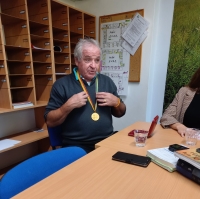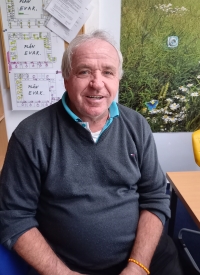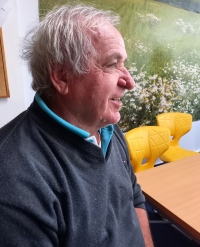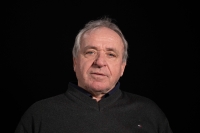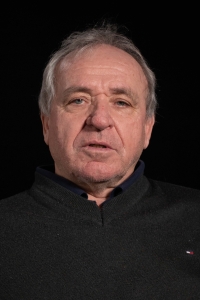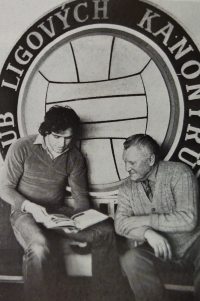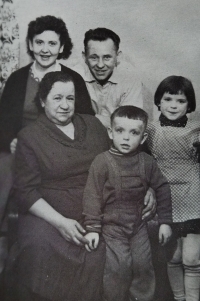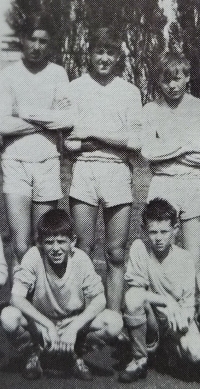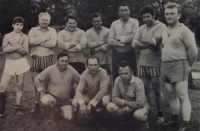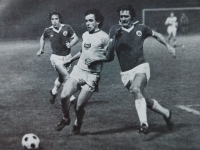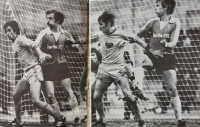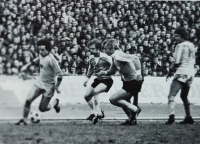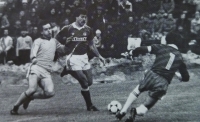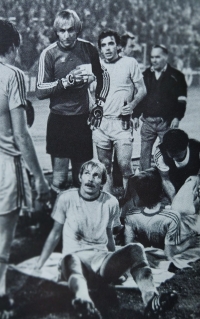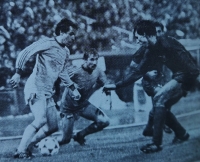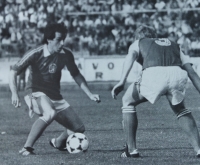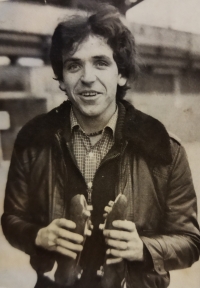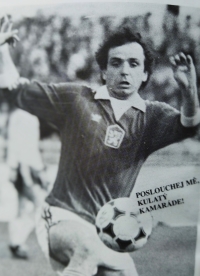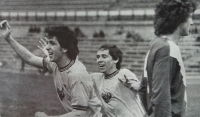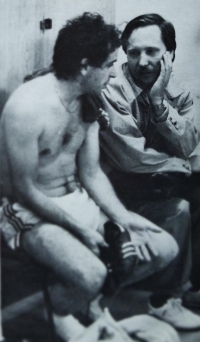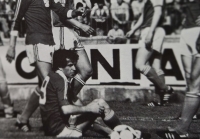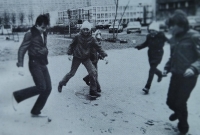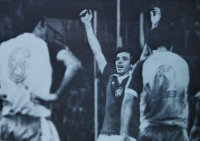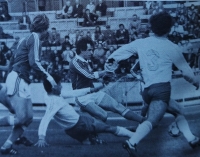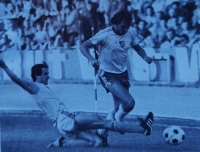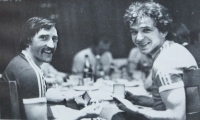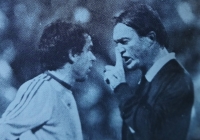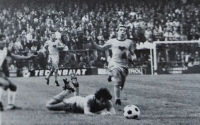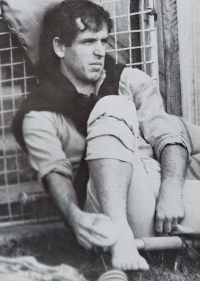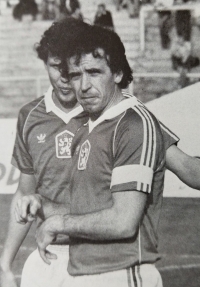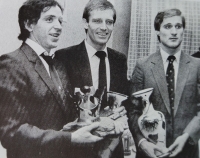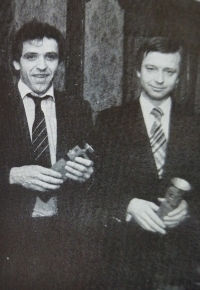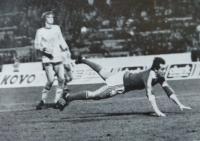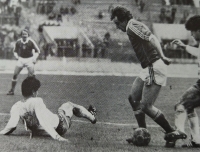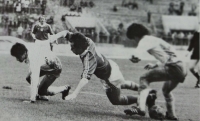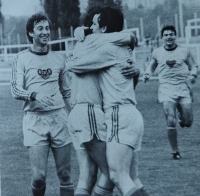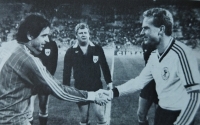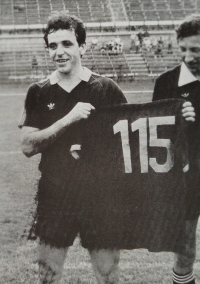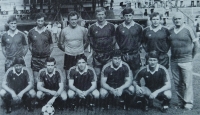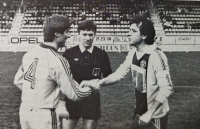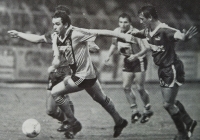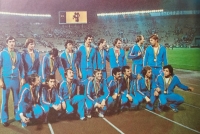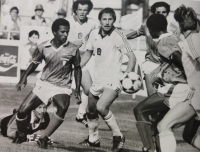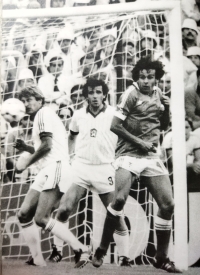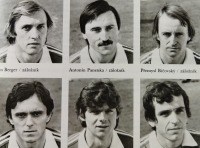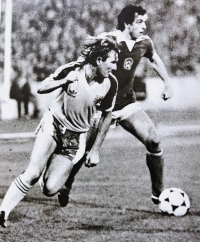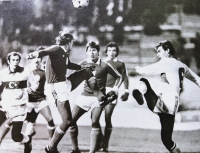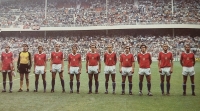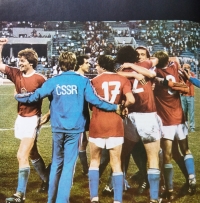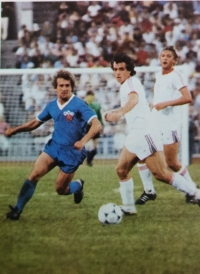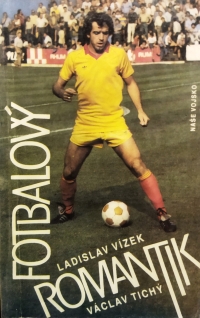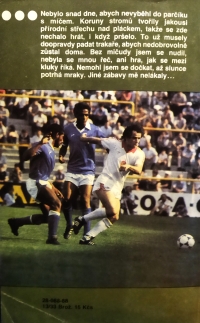He was dad‘s dog, chased rabbits and learned tricks that Europe marveled at.

Stáhnout obrázek
Ladislav Vízek was born on 22 January 1955 in Chlumec nad Cidlinou. His father was a driver at the District Construction Company Nový Bydžov, his mother worked at the Unified Agricultural Cooperative (JZD). Ladislav Vízek grew up in the village of Hlušice with his younger brother and older sister. He went to primary school in Hlušice, after which he became a toolmaker. He played football for the pupils of Nový Bydžov, in his youth he moved to Spartak Hradec Králové. Due to a difficult commute, he returned to Nový Bydžov, where he played in the adult team of the regional 1. A class. Thanks to Dáša Kocková, the daughter of the chairman of the first league Dukla Prague, who had a cottage near Vízek‘s, he was selected for the military squads at the beginning of the war. He caught the attention of the officials of VTK Žatec, where he played for a year in the third league. Then he moved to the first league Dukla Prague, where he quickly made his way into the starting line-up. With Dukla, he won the national championship three times and twice became the Czechoslovak Footballer of the Year. With Dukla he played regularly in European Cups. In the 1978/79 season Dukla reached the quarter-finals of the UEFA Cup, in the 1985/86 season the semi-finals of the Cup Winners‘ Cup. In 1977 he made his debut for the Czechoslovak national team, scoring 13 goals in 55 games over nine years. In 1980 he won bronze at the European Championships in Italy and gold at the Summer Olympics in Moscow. In 1982 he represented Czechoslovakia at the World Championship in Spain. In 1986 he transferred from Dukla to the French first league club AC Le Havre. He scored 11 goals in 61 games and earned millions of crowns in two years, which enabled him to buy a profitable restaurant after the fall of the communist regime. He spent the end of his career in Gmünd, Austria. He scored a total of 126 goals in the Czechoslovak and French First Leagues and became a member of the prestigious Cannon Club. After 1989, he was a delegate at first league matches for several years, and in 1996 his son-in-law, Czechoslovak national team player Vladimír Šmicer, became his son-in-law. Apart from football, he played other sports recreationally - tennis, table tennis, hockey, golf and billiards. He also fell in love with the card game of Mariáš and odds betting. He also tried roulette, but lost out and quit. He started writing football commentaries for Deník Sport, a collaboration that continued in 2022, when he lived in Prague. He was then married for the second time and had a nine-year-old daughter with his wife.

